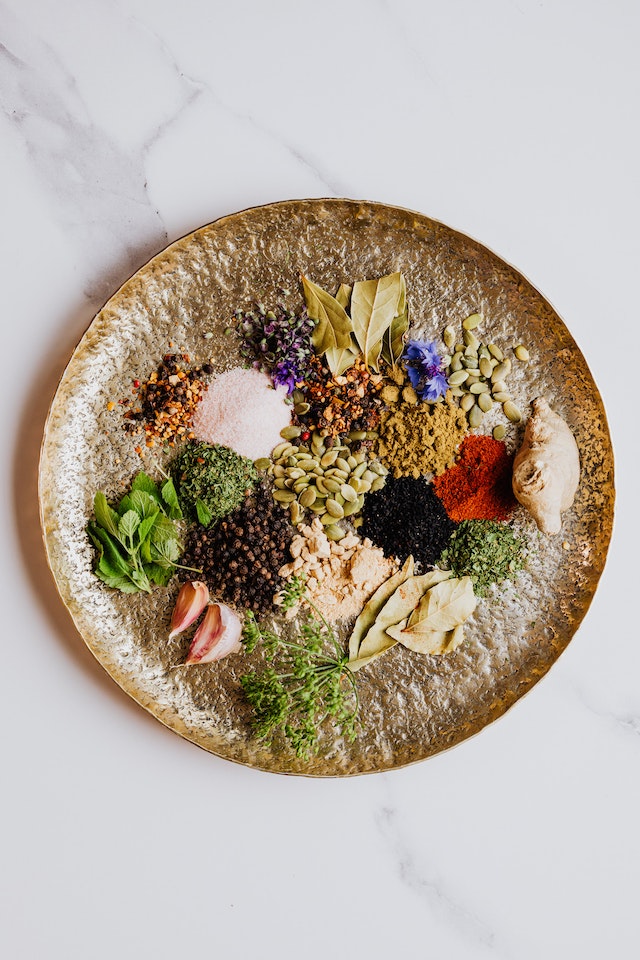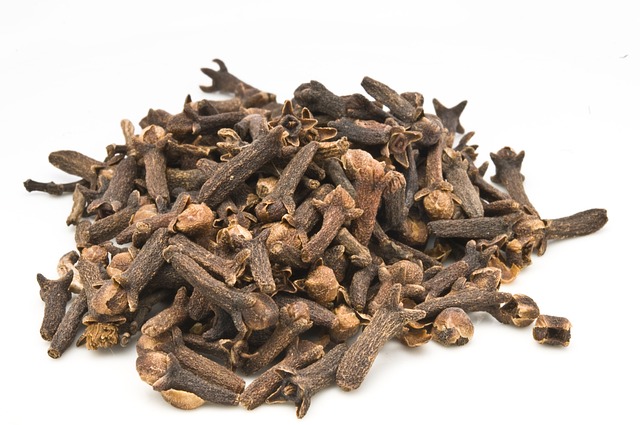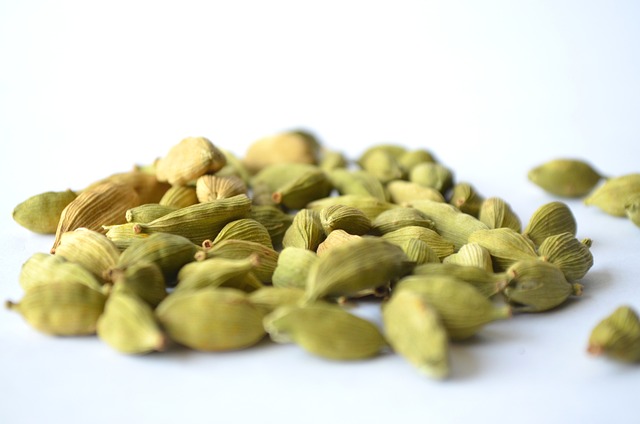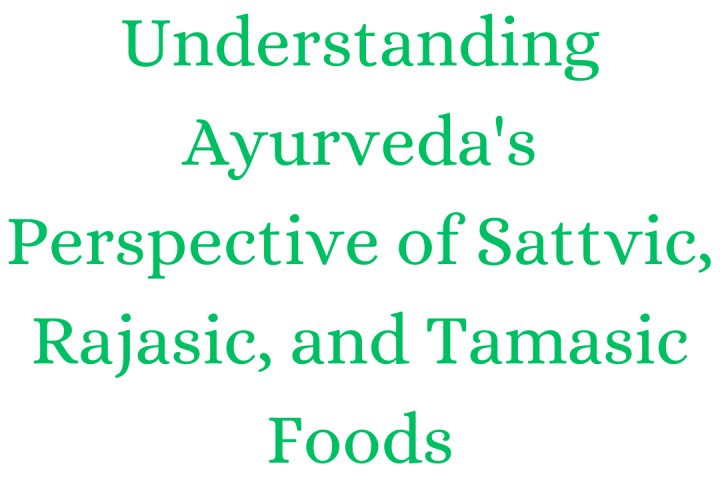Spices can turn a plain meal into a delicious affair, with their antioxidant benefits it also helps in uplifting one’s mood. There are about 300 common spices used in cooking almost everywhere in the world. We are surrounded by these spices and can easily find them in the nearest local market. We know many of your faces light up just looking at flavorsome meals, it is because of the spices and herbs used in them. The aromatic fragrance of spices and the color they infuse into the food makes even an awful day bright. But its benefits are not just restricted to the flavor, it has many health benefits as well.
In this article, we will be discussing the spices that can help in enhancing your mood and their benefits. You can use it in daily life and make your already amazing life stunning.
Here’s a list of the spices and their benefits.
Ginger
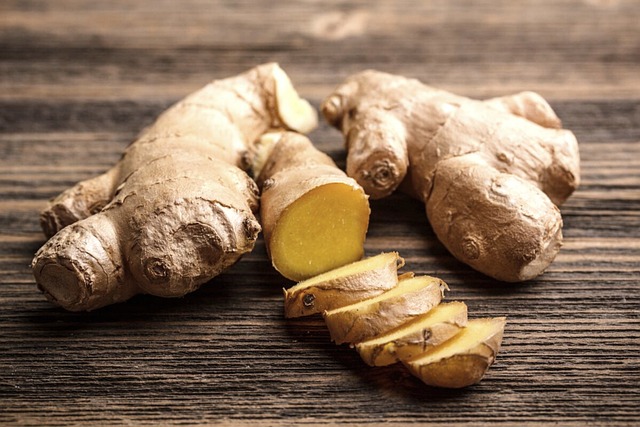
Ginger or ginger root is a key ingredient spice in many households. It is famous for its medicinal properties. Most of the global producers of Ginger are India, followed by Nigeria, China, Indonesia, and Nepal. Thailand, Cameroon, Bangladesh, Japan, and Mali are also major ginger producers in the world.
Overall ginger is produced worldwide in almost 40 countries. It is known to add flavor to one’s food and is good for uplifting mood. Ginger has many health-related benefits as well.
It is used in easing headaches, common flu, coughs, and colds. The bioactive compound found in ginger’s roots works as an immunity booster. Furthermore, It also helps in alleviating menstrual pain in females. It can be used daily to regulate proper digestion.
It is used as a spice throughout the world. People use it to marinate meat, especially chicken.
Ginger can calm an upset stomach, it can relieve nausea. Ginger improves the health of your skin with antioxidants, increased blood circulation, and antiseptic properties. It reduces inflammation and protects the brain from free radicals due to powerful antioxidants.
It also improves memory function by increasing the neurotransmitters in our brain responsible for memory, focus, and reaction time.
How to take it – One of the most common ways of consuming ginger is through tea. You can also include ginger in your food. It can add extra flavor to the food. You can also consume ginger juice as well.
Nutrition Value – It contains dietary fibers, protein, and a very small amount of carbohydrates. There are traces of vitamins and minerals in ginger such as Vitamin b3 and b6, iron, potassium, magnesium, phosphorus, zinc, and vitamin C.
Side effects – If taken in large amounts on daily basis, it can cause heartburn, gas, mouth irritation, and upset stomach. It can also raise the risk of bleeding if you have a bleeding disorder.
Always speak to your doctor before starting with ginger supplements.
Clove
Cloves are the aromatic flower buds of a tree in the family Myrtaceae, Syzygium aromaticum. In China, during the Hans dynasty clove was used as a natural mouth freshener whenever someone sought an audience with the emperor.
Today, Indonesia is the highest producer of cloves in the world. Madagascar, Sri Lanka, Kenya, China, and Malaysia are among the top producers of cloves in the world.
Clove is used as an aromatic spice and has been used in traditional medicine. It is high in antioxidants and anti-microbial properties. They can help in stopping the growth of bacteria in the body. Its oil can also help in killing the bacteria called E.coli which is a strain of bacteria that causes food poisoning.
Various studies have shown that cloves can help in regulating blood sugar. Hence, it is advised to use this spice in cooking.
Cloves are rich in Manganese which helps in increasing bone density and health. Because of its anti-inflammatory and anti-bacterial effects, clove is used for toothache and dental pain.
It is also said to be good for joint pain and boosts a person’s immunity and mood.
How to take it – Either you can use it in the form of oil or you can use it as a spice in food. You can also use it in tea. Some people also use clove in seasoning and marinating meat.
Nutrition Value – Cloves are an excellent source of Vitamin K, Potassium, Eugenol, and Beta-carotene.
Side effects – Smoking clove cigarettes can cause hemorrhagic pulmonary edema, bronchitis, pneumonia, occupational allergic contact dermatitis, and central nervous system depression. Eating or exposure to a large amount can cause tissue injury and a syndrome of acute onset of seizures, damage to the liver and kidneys, and coma.
Cinnamon
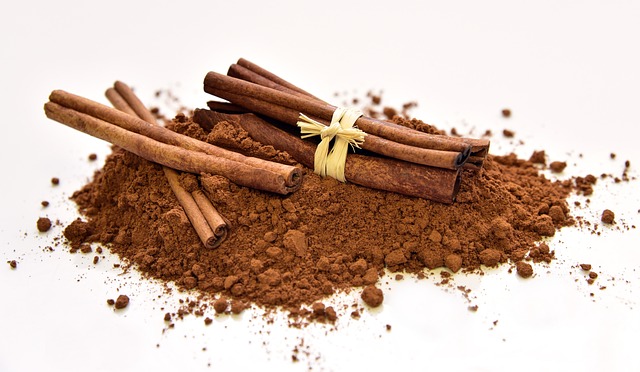
Cinnamon is a spice that is obtained from the inner bark of several tree species belonging to the Cinnamomum family. Indonesia is the world’s leading producer of cinnamon accounting for 43% of the world’s produce followed by China accounting for 33% of the world’s. Vietnam and Sri Lanka also come under the top 5 producers of cinnamon accounting for 15% and 8% respectively.
Along with its aromatic properties, cinnamon is beneficial for one’s health as well. Cinnamon has antioxidants like polyphenols which are good for mood. A study says that inhaling cinnamon can boosts the cognitive function and memory of a person.
Furthermore, it works as a natural food preservative. This spice is used everywhere in the world and is good for enhancing the mood of a person.
Cinnamon’s main compound cinnamaldehyde helps in fighting against various infections. Its anti-bacterial, and anti-inflammatory value helps reduce the risk of getting severe infections. It is also beneficiary in treating the common cold. It is good for indigestion, diabetes, and cough.
How to take it – Cinnamon is used in the powdered form. Many people use it as the main spice while cooking dishes. Furthermore, it is also used in tea, bakery products, and drinks.
Nutritional value – It is rich in calcium and potassium. It contains iron, phosphorus, magnesium, and vitamin A in very small amounts.
Side effects – Consuming excessive amounts of cinnamon may lead to the risk of cancer. It can also damage the liver. As cinnamaldehyde in cinnamon is a throat irritant, excess consumption in one sitting may cause breathing problems.
People with asthma and other breathing problems need to be careful of accidentally inhaling cinnamon.
If you are on any kind of medication for health-related problems, please check with your doctor before adding this spice to your meal. Before consuming it as it may intensify its effect along with the medication causing the serious issue.
Cardamom
Cardamom is famous for its pleasant fragrance and taste. Its aromatic property can uplift the mood of a person. Indonesia, India, Guatemala, Nepal, Sri Lanka, and Laos are a few of the major producers of cardamom in the world. Bhutan, Tanzania, Grenada, and Honduras are some other producers.
It is rich in antioxidants, helps detoxify the blood, and expels water collected around important organs by promoting frequent urination. Cardamom contains oil known as cineole, which has antimicrobial properties.
Furthermore, it can also prevent the development of gum diseases and cavity problems. Because of its antioxidant quality, it reduces inflammation. It is also good for skin, especially acne-prone skin.
How to take it – You can use it in powdered form. You can also use it as a spice in your food. People generally use it in making curry dishes, cookies, smoothies, and even in cheesecake.
Nutritional Value – Cardamom is a good source of minerals like potassium, calcium, and magnesium. Additionally, it is also an excellent source of iron and manganese.
Further, these aromatic pods are rich in many vital vitamins, including riboflavin, niacin, and vitamin C which are essential for optimum health.
Side effects – It can cause chest pain and tightness. One of the severe side effects of cardamom is its allergic reactions. Cardamom can cause hypersensitivity and respiratory allergies in people.
However, if you are on medication it is important to take guidance from a doctor before consuming it.
Turmeric
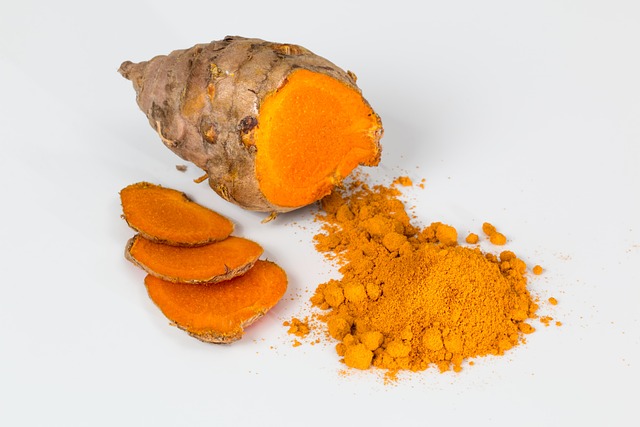
Turmeric is cultivated throughout the world. The top producers are India, China, Taiwan, Indonesia, Sri Lanka, Java, Brazil, Peru, many parts of Africa, and Australia. India is the highest producer of turmeric in the world.
Erode, also known as called “Yellow City, “Turmeric City,” or “Textile City,” is a city in the South Indian state of Tamil Nadu; it is the world’s largest producer and the most important trading center for turmeric.
Sangli, a city in Maharashtra, is second only to Erode in size and importance as a production and trading site for turmeric.
Turmeric is used as a spice and herb in many households. Recently science has started to back up traditional claims that turmeric contains compounds with medicinal properties called curcuminoids.
The most important one is curcumin. Curcumin is the main active ingredient in turmeric. It has powerful anti-inflammatory effects and is a very strong antioxidant.
It also contains bioactive compounds. Because of its anti-inflammatory properties, turmeric can also help in easing body pain.
However, we need to understand that turmeric is only 3 % of curcumin, and the body doesn’t absorb this very well, which means one should not entirely depend on it for the treatment.
How to take it – You can use it in your food as it provides an exceptional yellow color. You can also make turmeric tea or take it with hot water. You can also make a facial mask of it as it helps in reducing face acne.
Nutrition Value – Along with its anti-inflammatory properties, turmeric contains antioxidants, a very small amount of protein, vitamin C, and carbohydrates. It also contains fiber and iron.
Side effects – Pregnant women and people who are taking blood-thinning medication should avoid taking turmeric supplements because of their blood-thinning effects. If taken in large amounts, it can stimulate the stomach to produce more gastric acid, while it can be helpful for some people, at the same time it can be harmful to some people.
We cannot entirely depend on home remedies and take them as a treatment for severe illnesses. One should always consult a doctor if the condition deteriorates.
There are many more spices that are good for health and enhancing one’s mood such as garlic, cinnamon, fennel seeds, Ginseng, etc to name a few. Spices not only add flavors to the food but also helps in making a person healthy. By using herbs in your day-to-day life you can avoid diseases that can turn out to be a huge problem later on. With the right knowledge and information on spices, you can make your life and the lives of your loved ones healthy.

